Water Sources – Cisterns
Santarém was a fortified city on top of a hill and although there was a part walled near the river, its water supply seems to have relied heavily on cisterns. A number of cisterns has been found in the normal process of destruction and reconstruction of the city buildings and we have notice of the existence of ten.
Most wells have disappeared, although there are some historical references to wells in the city.
The cistern pictures presented below were taken by José Freitas and posted on “A minha Santarém.”
Santa Maria da Alcáçova
This cistern is located under the Santa Maria da Alcáçova church area.
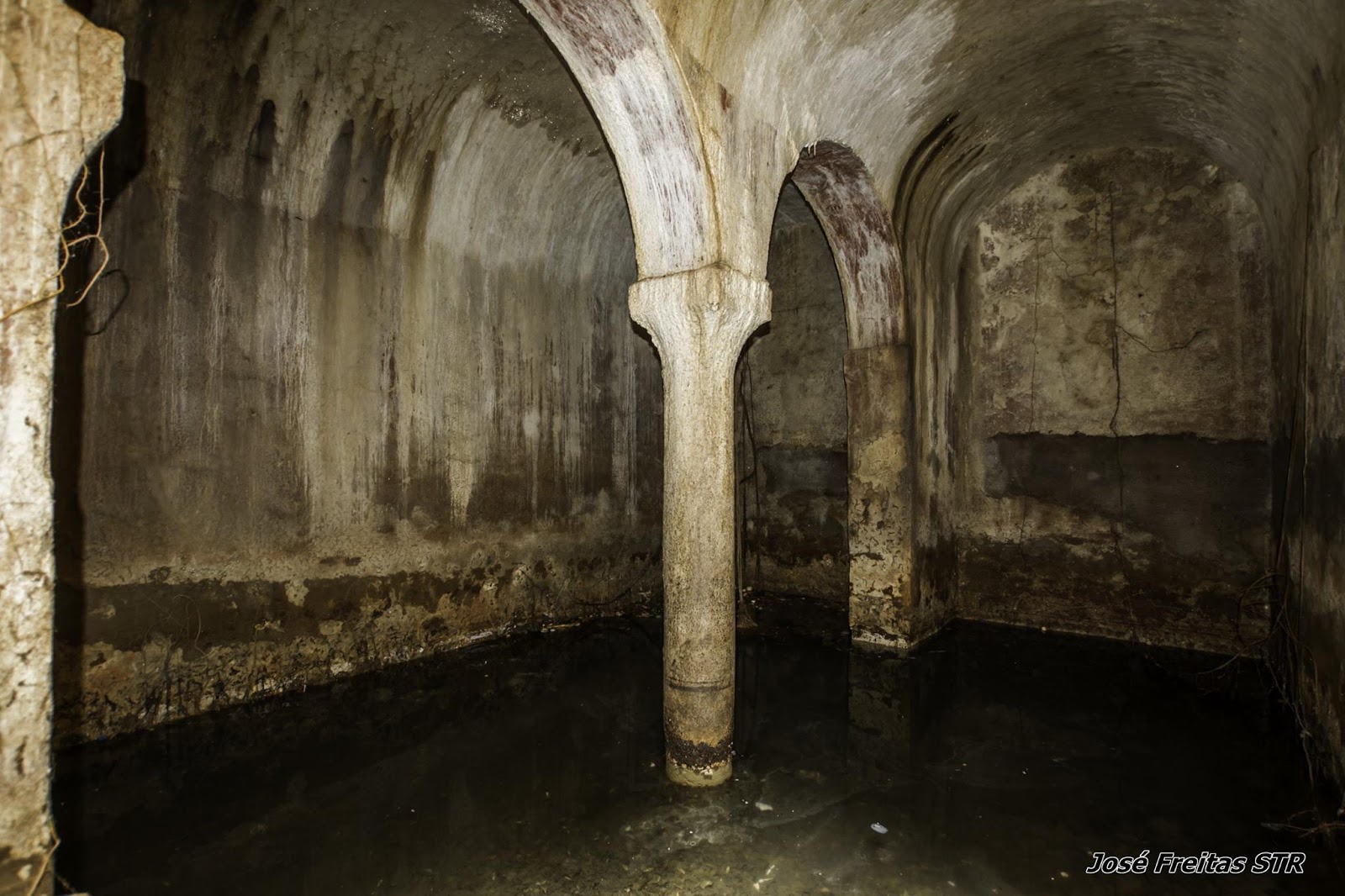
Nossa Senhora de Jesus
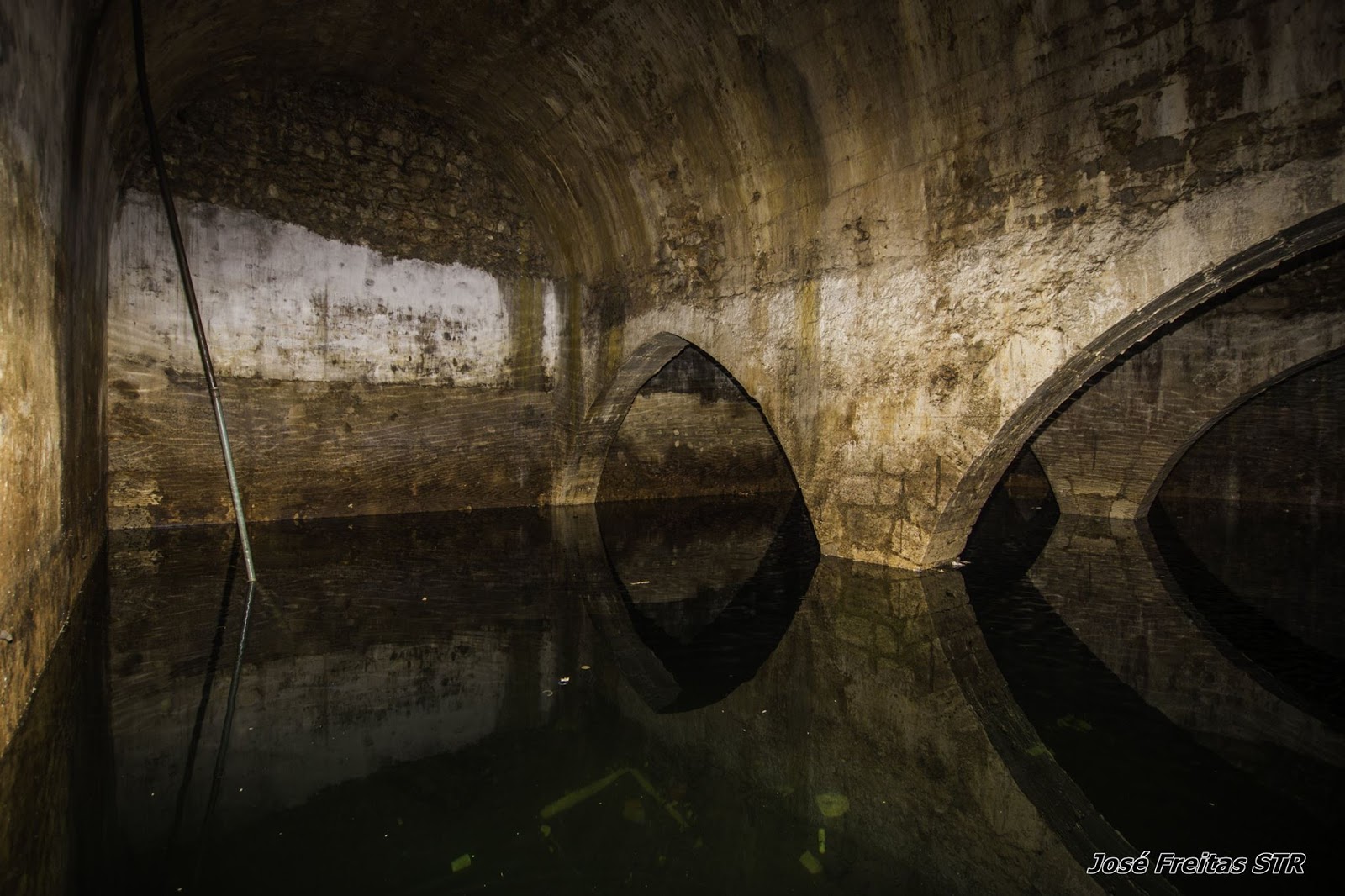
Seminário
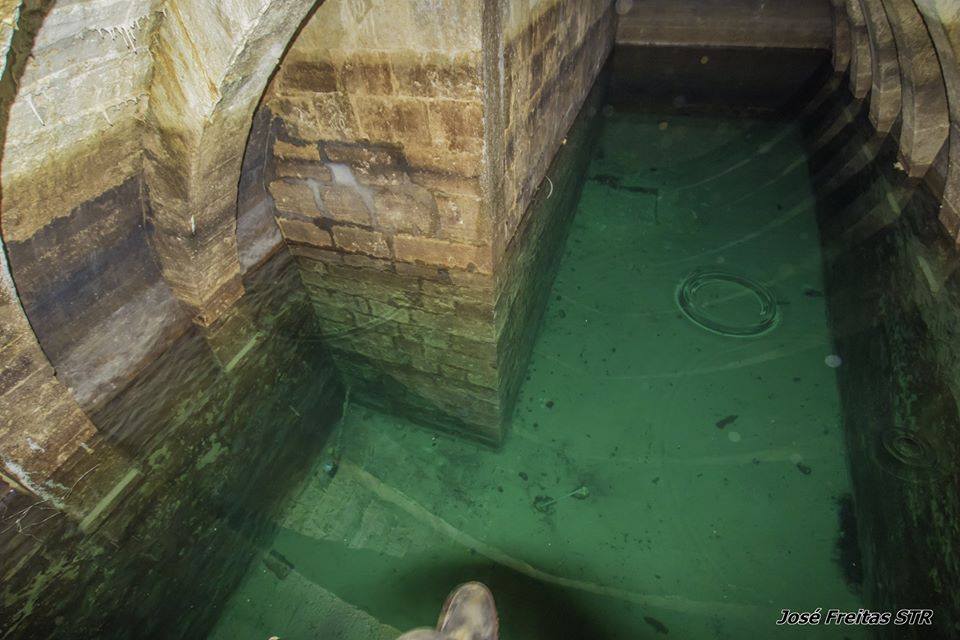
Nossa Senhora da Piedade
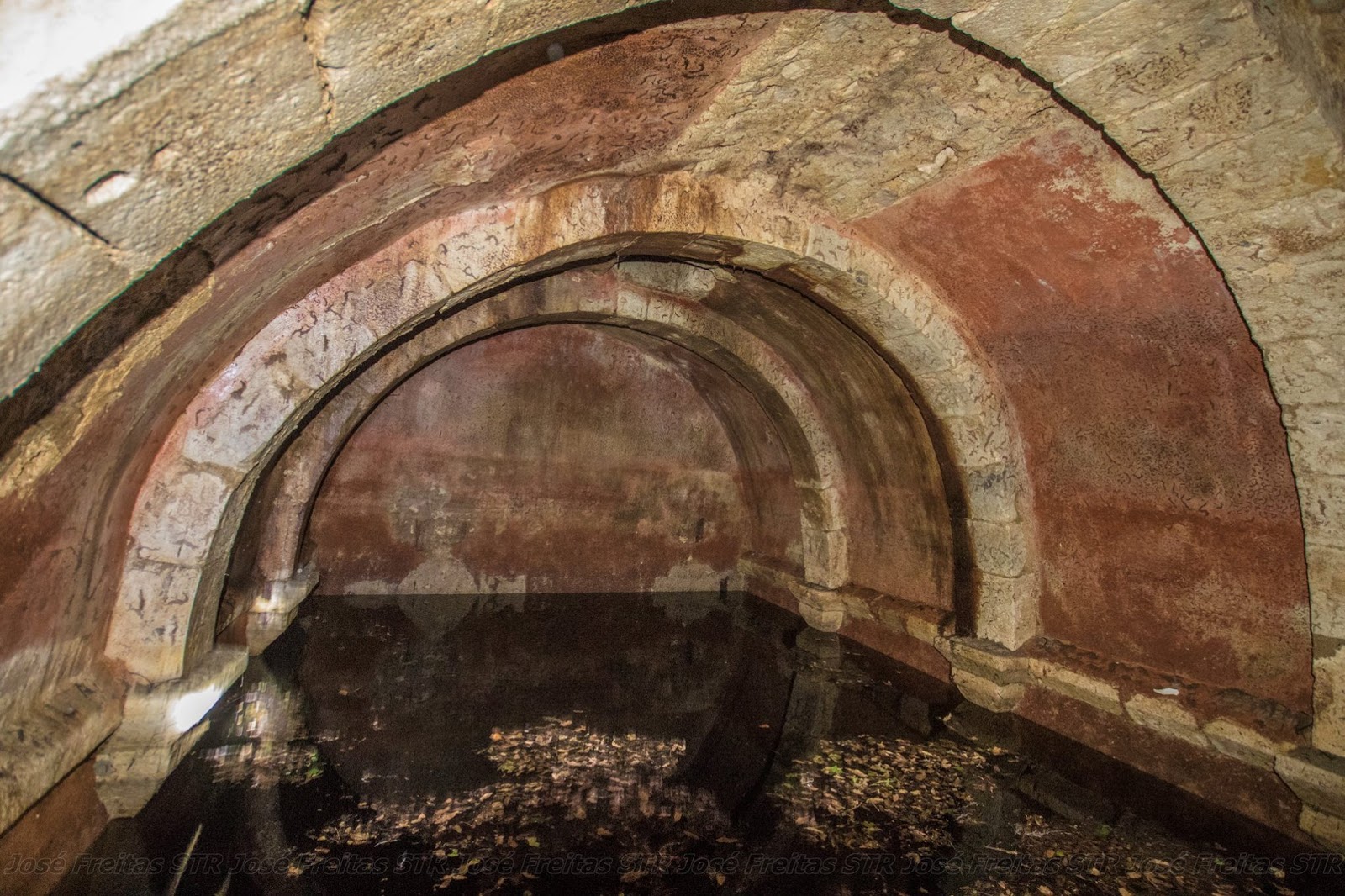
S. Francisco
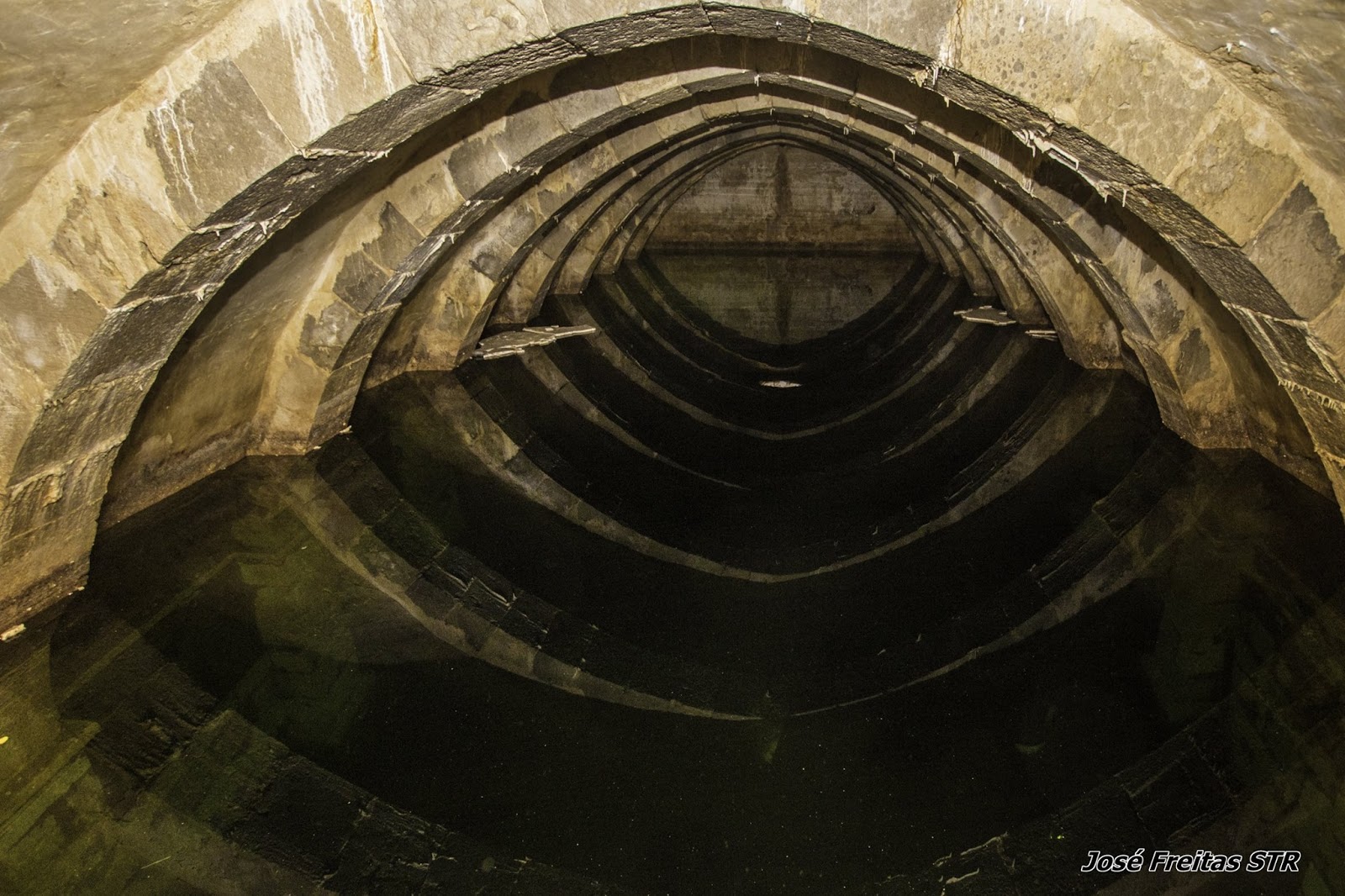
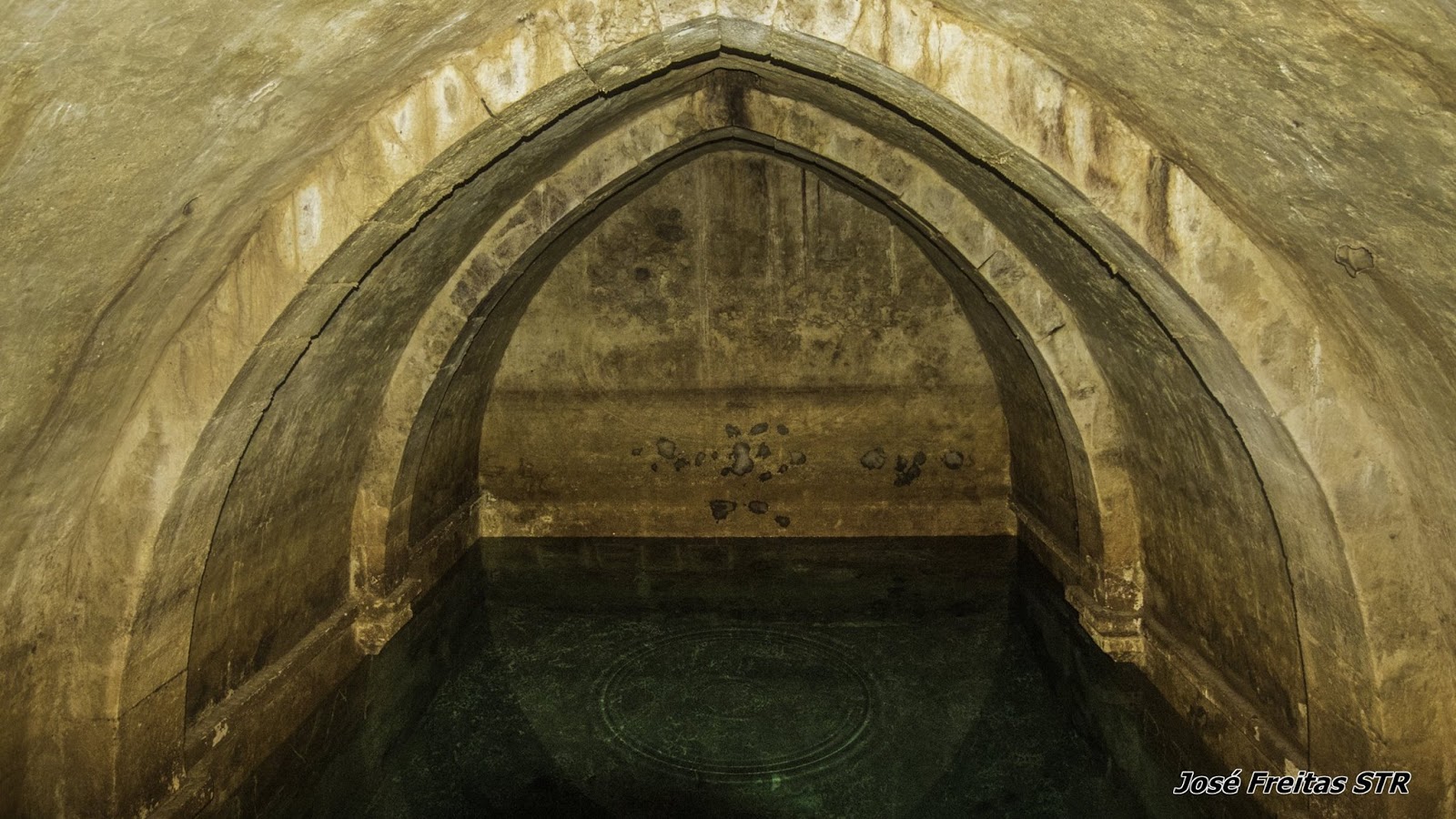
This cistern is located under the church with the same name. The second cistern is located under the convent’s cloister.
Santa Clara
This cistern was a garbage dump until the 1990s.
Beco da Cacaimba
This cistern was found in 2016, during renovation works. It is very well preserved and measures 5.1 m in height.
Teatro Sá da Bandeira
This cistern was found in 2003 and was not excavated. It is full of garbage.
Avenida 5 de Outubro (Rádio Ribatejo)
This cistern was found during the excavation of the foundations of one of the five buildings on the SW side of Av. 5 de Outubro. Inside was a pot with coins, of which some were sold by the contractor, and some were given to a museum in Coimbra, unprovenanced.
São Bento
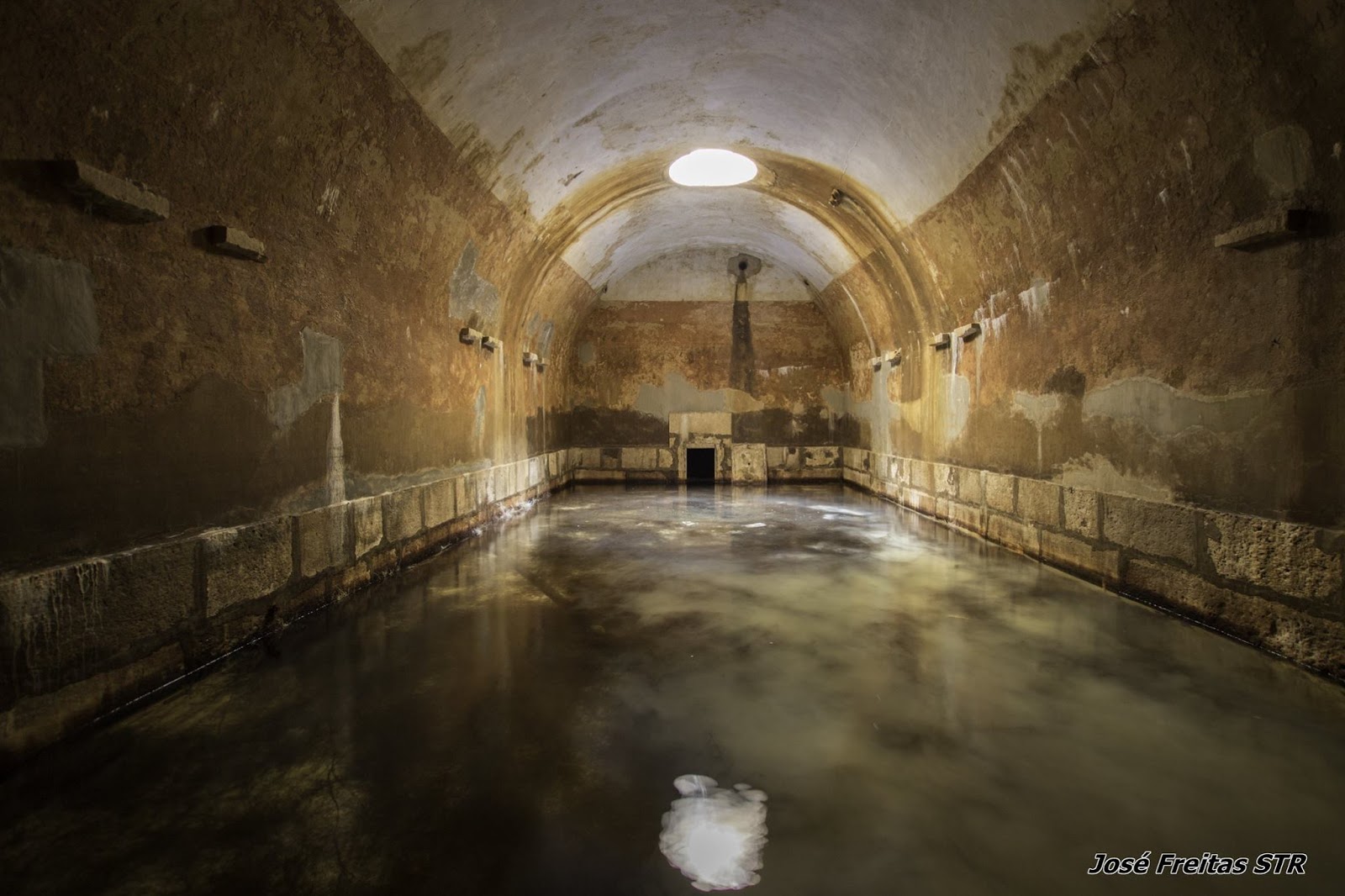
This cistern is located in the place where the convent once stood.
Mãe d’água
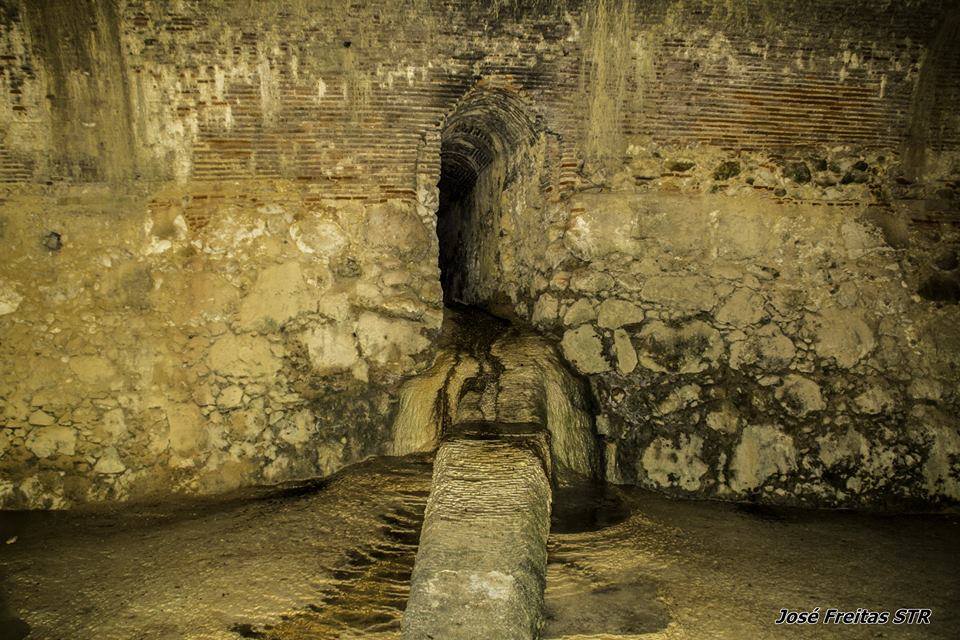
This cistern is located a few meters beyond the entrance of the tunnel and is connected to a system of tunnels that were largely collapsed already in the 1970s.
